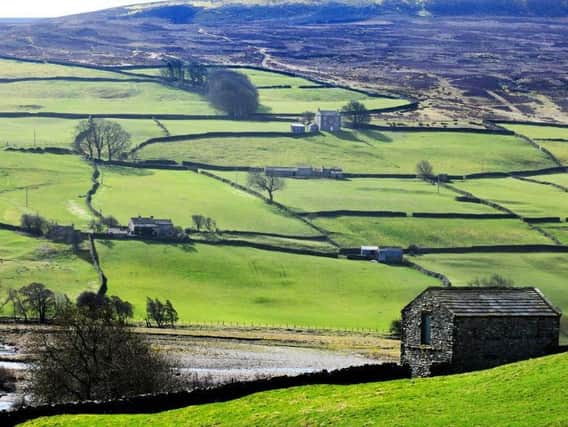What rural Yorkshire needs as lockdown is eased - Sarah Todd


This correspondent’s initial reaction isn’t printable in a family newspaper, so to paraphrase it’s something along the lines of hoping all the people who’ve invaded the countryside over lockdown (umm, how to put it politely?) clear off.
That’s awful, isn’t it? But there is no point pretending. Here’s hoping that when the shopping centres open the general public will get the retail therapy bug again. What a bonus if they were also able to get a foreign holiday booked…
Advertisement
Hide AdAdvertisement
Hide AdJust the other day, driving a trailer through the village near where we live, the walkers’ cars were so seriously double parked negotiating this stretch of road could have been one of the crazy challenges from the television programme Top Gear.
Every gateway we passed had a car parked in front of it – a nightmare for farmers who need access to livestock or to tend to crops – and there were at least half a dozen cyclists who definitely had spatial awareness issues.
As we’ve edged nearer the lifting of restrictions, the juxtaposition between those on furlough out and about enjoying themselves in their leisurewear compared to those who are clarted up to their wellie tops working in the countryside has definitely started to grate.
Our 17 year-old son, who has spent lockdown juggling his college work between helping his grandparents on their beef farm and tractor driving for a local arable farmer, surprised his mother with the poignancy with which he spoke on this subject.
Advertisement
Hide AdAdvertisement
Hide Ad“All I’ve seen are old people meeting friends and enjoying themselves; using the countryside as a playground,” he said after enquiring what his mother was writing about. He clarifies that by ‘old people’ he means those over 30 and goes on to speak about a well-known young farmer saying about long hours, long days and long fields.
After an absence of well over a year, his young farmers’ club is hoping to have a bit of a meet-up next week. It feels like a really important milestone on the long road to getting back to normal.
There is definitely something in what he said about people treating the countryside as a playground. Our area had a spike in Covid cases at the peak of the pandemic and the only thing to attribute it to would be the visitors. How would they have felt if we’d all turned up outside their houses in the middle of a global crisis?
The relationship between town and country has been seriously damaged by Covid-19. In the virus’s wake there is a growing awareness among young people that they will never be able to afford to live in the area where they have grown up. Zoom and such-like has made home working a very real possibility for so many people who have fallen in love with the areas they discovered during lockdown. On an average agricultural wage even the smallest cottage has been buoyed way out of reach.
Advertisement
Hide AdAdvertisement
Hide AdBack in the day, villagers used to run out with a shovel for the roses if your horse made some muck as you rode it. Now, the new move-to-the-country-brigade look disgusted. There is a difference; a cultural divide.
Problems with dogs running wild among livestock, speeding cars, litter dropping and trampling crops are well documented but never seem to improve. Is it that the countryside is a ‘free’ playground that creates the problem?
When people have paid for something such as a wildlife park or stately home they seem to behave so much better.
The Lake District shepherd and author James Rebanks writes very eloquently about the ‘colonisation’ of tourists and the cultural disconnection from the land that entails. His feelings of being an outsider – part of an almost indigenous or native population – as a young man in the 1980s and 90s will ring very true to today’s rural youth.
Advertisement
Hide AdAdvertisement
Hide AdEven though he was a farmer’s son born and bred from many generations who had lived in the area, he felt like the odd one out, rather like a rare breed animal.
These feelings of isolation and not belonging in an area where your family has lived all their lives probably can’t be helped; but being recognised and spoken about are important. Just like any other minority.
To conclude, it’s been an odd year or so and the entire population, whether town or country, needs a moment to find its way out the other end to the new normal.
Of course, life’s not like that. Pubs, shops and the tourist trade need to get going again. Jobs and livelihoods depend upon it. We’ll all muddle through; plough on and hope for the best.
Sarah Todd is a former editor of Yorkshire Life magazine. She is a farmer’s daughter, mother and journalist.